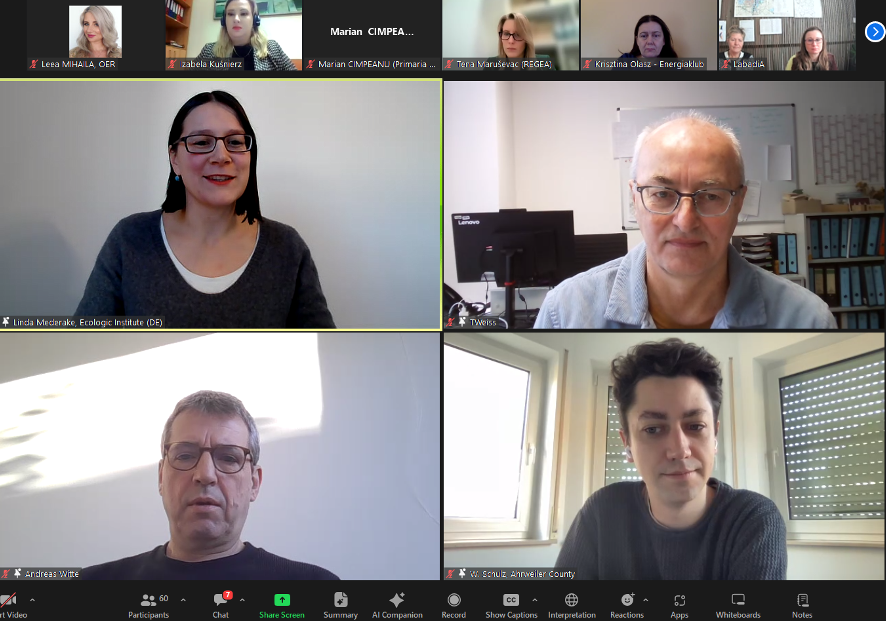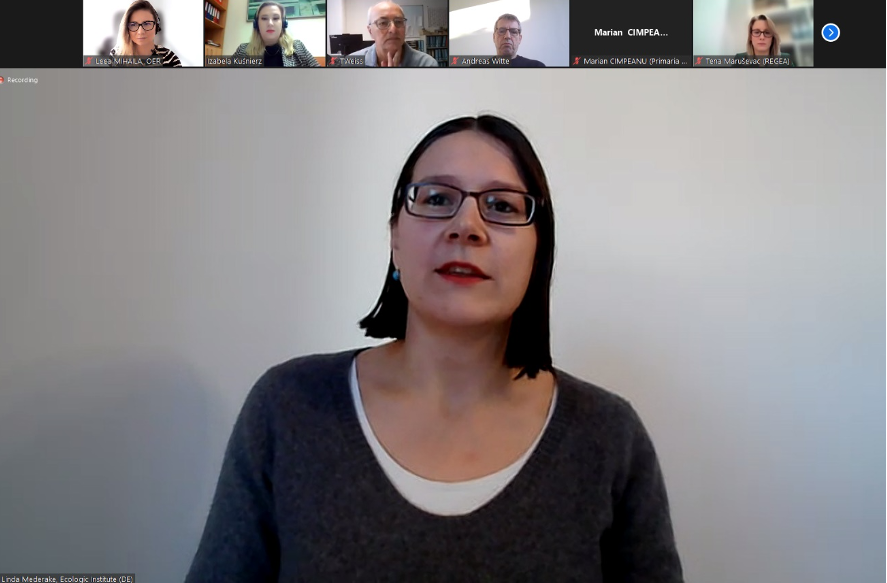Ready4NetZero Webseminar: Engaging Citizens for Climate Neutrality
On January 9th, 2024, the third Ready4NetZero webinar hosted a discussion with climate action community engagement experts, which was attended by nearly 70 participants.

During the webseminar moderated by Linda Mederake from Ecologic Institute gGmbH, the importance of the Ready4NetZero project was highlighted. The project aims to develop a Guide to Developing Local Climate Neutral Strategies, which includes case studies, key elements, measures, and strategies related to climate neutrality. The webseminar featured three guests from the German municipalities of Osnabrück, Ahrweiler, and Kempten, who shared their success stories of engaging citizens in the journey toward a low-emission future.

Andreas Witte presented an overview of the Osnabrück region, focusing on energy needs and renewable energy production capacities, especially in terms of exploiting regional wind resources. The region’s main objective was to reduce the use of fossil fuels, using waste heat generated by the industrial sector, identified as a solution to the heating problems. As part of the „Strategic Masterplan“, they assessed industrial energy demand and waste heat, concluding that almost 20% of final energy consumption was wasted. They utilized PInA (Industrial Waste Heat Portal) as a tool to gather information, facts, and examples for their project and to identify hotspots and heating demands in existing buildings (residential and non-residential).
Wilhelm Schulz’s presentation, entitled „Involving citizens for sustainable development“, detailed the Ahrweiler region’s response to the devastating floods in 2021 as part of a comprehensive plan for the sustainable reconstruction of the Ahr Valley. The entire planning process was a collaborative effort that involved citizens in every step. Two multi-stakeholder conferences with over 5,000 online participants were held. As a result of the ideas that emerged from these conferences, a plan for the future was developed. While such a rebuilding process can normally take up to 10 years, the Ahrweiler district aimed to complete the transition in 4 years, with one of the biggest challenges being the resistance to change of citizens, especially the elderly.
Thomas Weiß presented the participatory planning process through the prism of his experience, based on the two processes that the municipality of Kempten has carried out in recent years. The two initiatives concerned the Mobility Concept of the City of Kempten for 2030 and the Climate Change Adaptation Strategy. In both cases, these are processes with long-term outcomes, requiring the involvement of both local authorities and citizens, in which the commitment of the participants was very important. Various entities including public administration, political representatives, companies, schools, and youth organisations actively participated in the workshops.
This webseminar is the second of a series of 6 other similar events, all part of the Ready4NetZero project. The next one will be organized on the 30th of January 2024. This capacity-building program focuses on the municipal administration staff from the Ready4NetZero pilot cities, but also other local authorities in Croatia, Hungary, Poland and Romania. Throughout the project, the team will organise in-person workshops to address country-specific needs, online train-the-trainer events, as well as a study visit to several forerunner cities in Germany for a good practice transfer and experience sharing among local public administrations converging on developing and implementing local long-term climate strategies.
Ready4NetZero is a EUKI funded project coordinated by the Polish Network “ENERGIE CITÉS”, with a consortium formed of the Ecologic Institute from Germany, ENERGIAKLUB from Hungary, REGEA from Croatia, and Energy Cities Romania. Ready4NetZero aims to support cities from the participating countries in developing and implementing 2050 climate neutrality strategies and seeks to do this by building capacity, knowledge, and skills among local leaders, municipal staff, and local stakeholders, facilitating experiences exchange and dialogue between local authorities.
